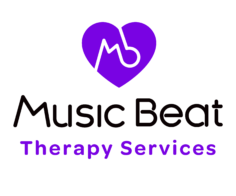In our fast-paced world, managing emotions can be a challenge. Whether you’re feeling overwhelmed, anxious, or just need a little boost, music can be a powerful ally in emotional regulation.
By incorporating music into your daily routine, you can enhance your well-being and navigate your feelings more effectively. Here’s how you can incorporate music into your daily routine to enhance your well-being and help you navigate your feelings.
Understanding Emotional Regulation
Before diving into the musical techniques, it’s essential to understand what emotional regulation means.
Emotional regulation is the process of recognising and understanding our feelings, and then responding to situations and our environment with the suitable emotional state.
In order to regulate emotions, one must first be able to reflect and understand how they are feeling. Once we recognise our emotions, we can adjust our responses. This means choosing reactions that reflect our values and using healthy coping strategies. Emotional regulation is a skill that takes time to develop, and is dependent on factors such as support networks available, education, and neurodivergence.
Emotional regulation can also help build resilience, allowing us to recover from setbacks and face challenges more easily. It can enhance our relationships, as managing emotions can lead to better communication.
Music can be a powerful tool in this process, helping us express and manage our emotions effectively. Using music as part of our emotional regulation toolkit can improve our coping skills and overall well-being.
The Science Behind Music and Emotions

Music has a unique ability to evoke emotions and influence our mood, making it a powerful tool for enhancing our emotional well-being. Research shows that listening to music can:
- Trigger Positive Emotions: When we listen to music we love, especially with others, our brains release feel-good chemicals like dopamine. This boosts our mood and motivation, helping us feel happier and more connected.
- Promote Relaxation: Slow, soothing music can effectively reduce stress and anxiety. As we listen, our brains and bodies sync with the rhythm, a process called entrainment. This can lower heart rates and promote relaxation, making it easier to unwind during activities like meditation or yoga.
- Support Emotional Expression: Music provides a powerful way to express feelings that are hard to put into words. Melodies and lyrics can capture complex emotions, helping us feel understood and less alone. This emotional release can be comforting and therapeutic, allowing us to process difficult experiences more easily.
Creating Your Emotional Soundtrack
One of the easiest ways to use music for emotional regulation is by creating personalised playlists that match your feelings.
Organising your music into different categories allows you to quickly find the right tracks for your needs. By curating these playlists based on your emotions, you can use music to support your well-being and manage your feelings more effectively.
- For Relaxation: Include calming tracks, soft instrumental music, or soothing nature sounds. These can help you unwind after a long day and reduce stress, creating a peaceful atmosphere.
- For Uplifting Vibes: Choose energetic songs that make you want to dance and boost your mood. This playlist is perfect for when you need a pick-me-up or want to energise your day.
- For Reflection: Select slower, more introspective tracks to accompany moments of contemplation or journaling. These songs can create a thoughtful space, helping you connect with your feelings and thoughts.
By creating these playlists, you can effectively use music to manage your emotions and support your well-being throughout different parts of your day.
Utilise Music During Key Moments

Using music throughout the day can boost your mood, enhance focus, and help you relax, promoting better mental well-being.
- Morning Motivation: Start your day with an energising playlist to set a positive tone. Choose lively songs with uplifting lyrics to boost your mood and get you ready for the day ahead.
- Study or Work Sessions: For studying or working, pick instrumental music or lo-fi beats. These help you focus and stay productive without being distracting, creating a great background for concentration.
- Wind Down: At the end of the day, listen to soft, calming music to signal it’s time to relax. Soothing tracks or nature sounds can help you unwind, reduce stress, and prepare for a good night’s sleep.
By incorporating music thoughtfully throughout the day, you can create a more balanced daily experience and regulate your emotions more effectively.
Engaging with Music Actively

Sing or Play an Instrument
If you’re musically inclined, singing or playing an instrument can be very therapeutic. Engaging with music allows you to express and release pent-up emotions, providing a healthy outlet for feelings like joy, sadness, or frustration.
Additionally, making music promotes mindfulness by encouraging you to focus on the melody and rhythm, helping you stay present in the moment. This immersion can lead to a state of flow, where you lose track of time and feel deeply connected to the music and yourself.
Creating music also boosts self-esteem and gives you a sense of accomplishment, making it a powerful tool for emotional regulation and personal expression.
Dance It Out
Don’t underestimate the power of movement! Dancing to your favorite songs is a fun way to express emotions and relieve stress. It lets you channel your feelings, whether you’re happy or a bit down.
Whether you’re having a solo dance party at home or joining a class with friends, dancing helps you connect with your body and enjoy the moment. It also boosts your mood by releasing endorphins.
Plus, dancing with others builds connections and a sense of community. So, whether you dance alone or with friends, moving to the rhythm can improve your emotional health and bring more joy into your life.
Mindfulness and Music

Mindful listening involves fully immersing yourself in the music. Find a quiet space, close your eyes, and focus on the different elements of the song—melody, lyrics, and instruments. This practice can ground you in the moment and help you connect with your emotions more deeply.
Combining music with meditation can enhance your practice and deepen relaxation. Calming music, like gentle melodies or nature sounds, creates a soothing atmosphere that helps quiet your mind and keep you focused.
This background music reduces distractions and makes it easier to enter a meditative state, promoting deeper breathing and relieving stress. It can also evoke emotions or memories, enriching your experience.
Using music in meditation establishes a routine that signals it’s time to relax, which can improve mindfulness and emotional regulation over time. Overall, music enhances relaxation and makes your meditation sessions more enjoyable and effective.
Music is a Powerful Tool
Music is a versatile and powerful tool for emotional regulation. By incorporating it into your daily routine, you can enhance your mood, reduce stress, and navigate your emotions more effectively.
Whether you’re creating playlists, singing, or simply enjoying mindful listening, let the rhythms and melodies guide you toward greater emotional balance.
At Music Beat Therapy Services, our Registered Music Therapists utilise various techniques to support clients in emotional regulation. This can include developing self-recognition of different emotional states through active music-making, where clients play instruments or sing to express feelings; listening to tailored music for relaxation or mood enhancement; and songwriting for personal expression.
We also use improvisation to allow real-time emotional expression and integrate movement with music to help clients connect with their bodies and release tension.
Our aim is to create a supportive environment for clients to effectively explore and manage their emotions.
If you have any questions about how music therapy can work for you, or about any of our NDIS Certified and Registered services and supports, please contact the Music Beat Therapy Services team.

